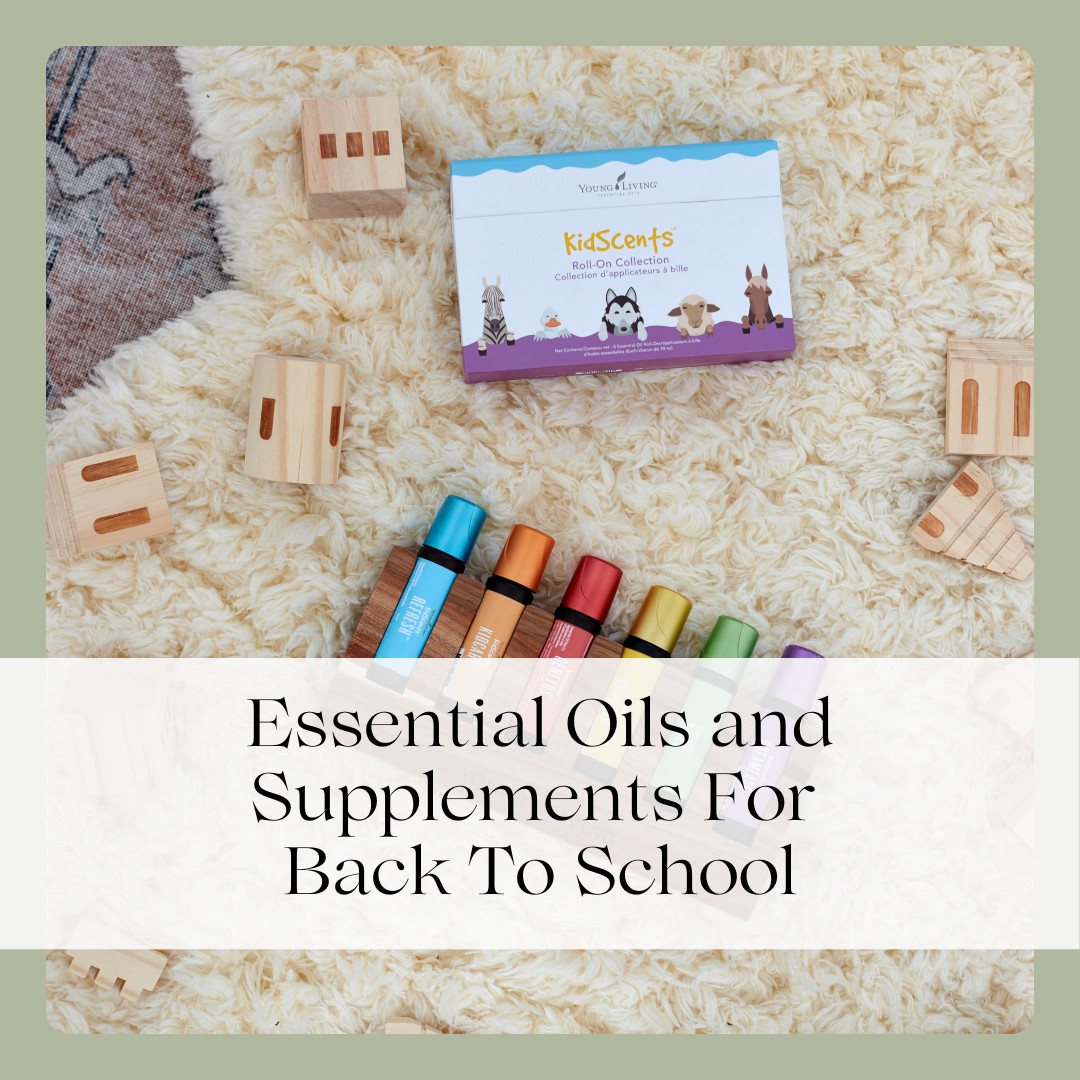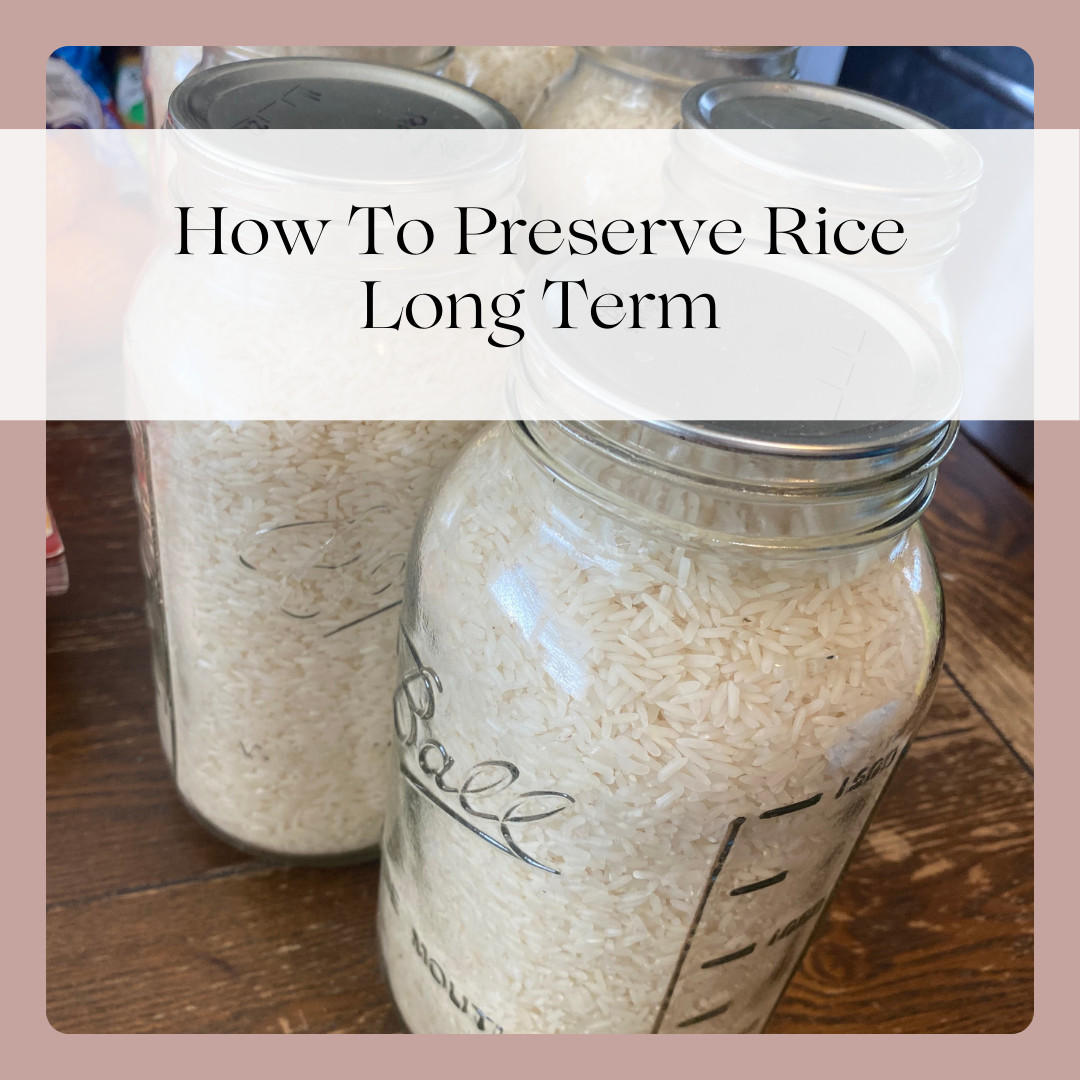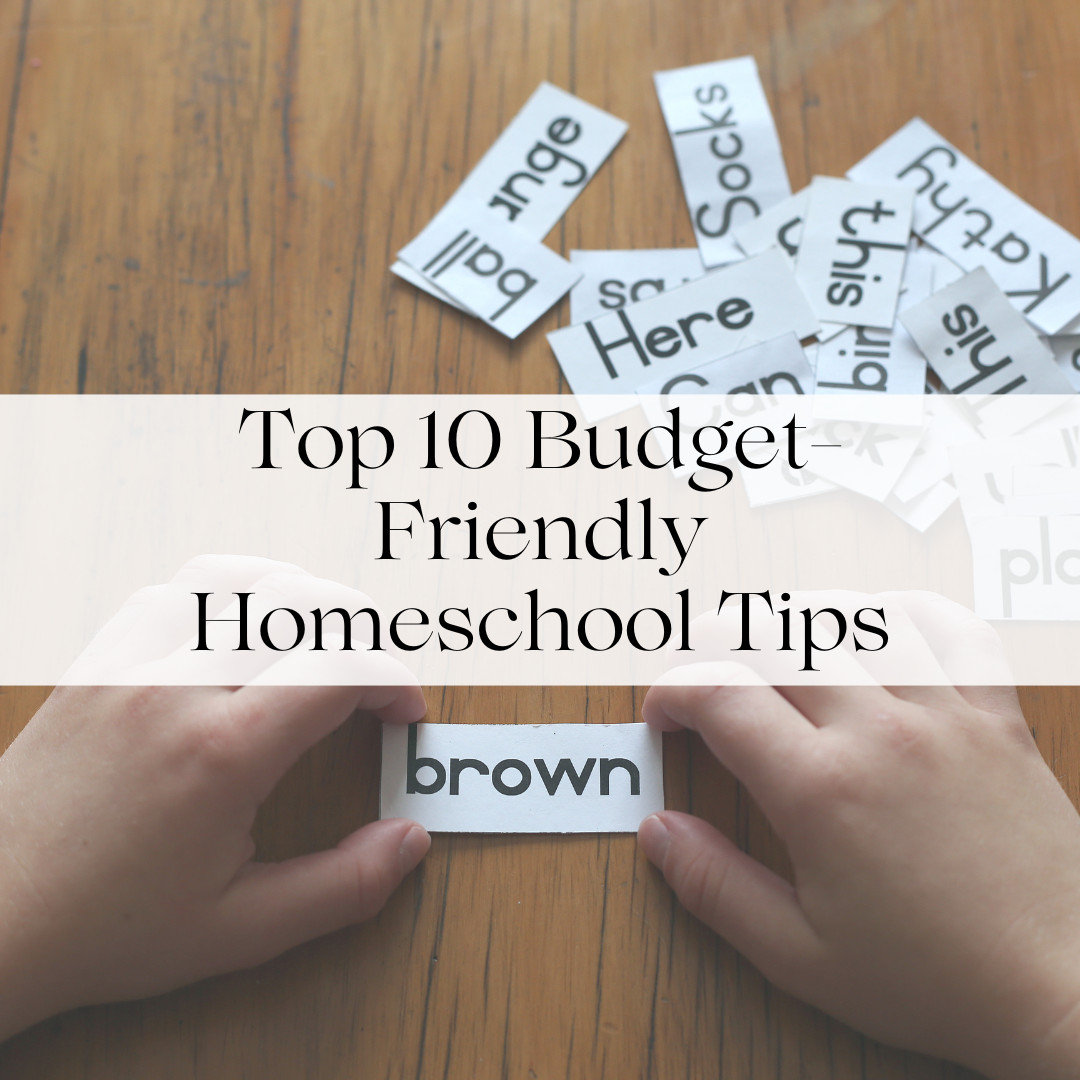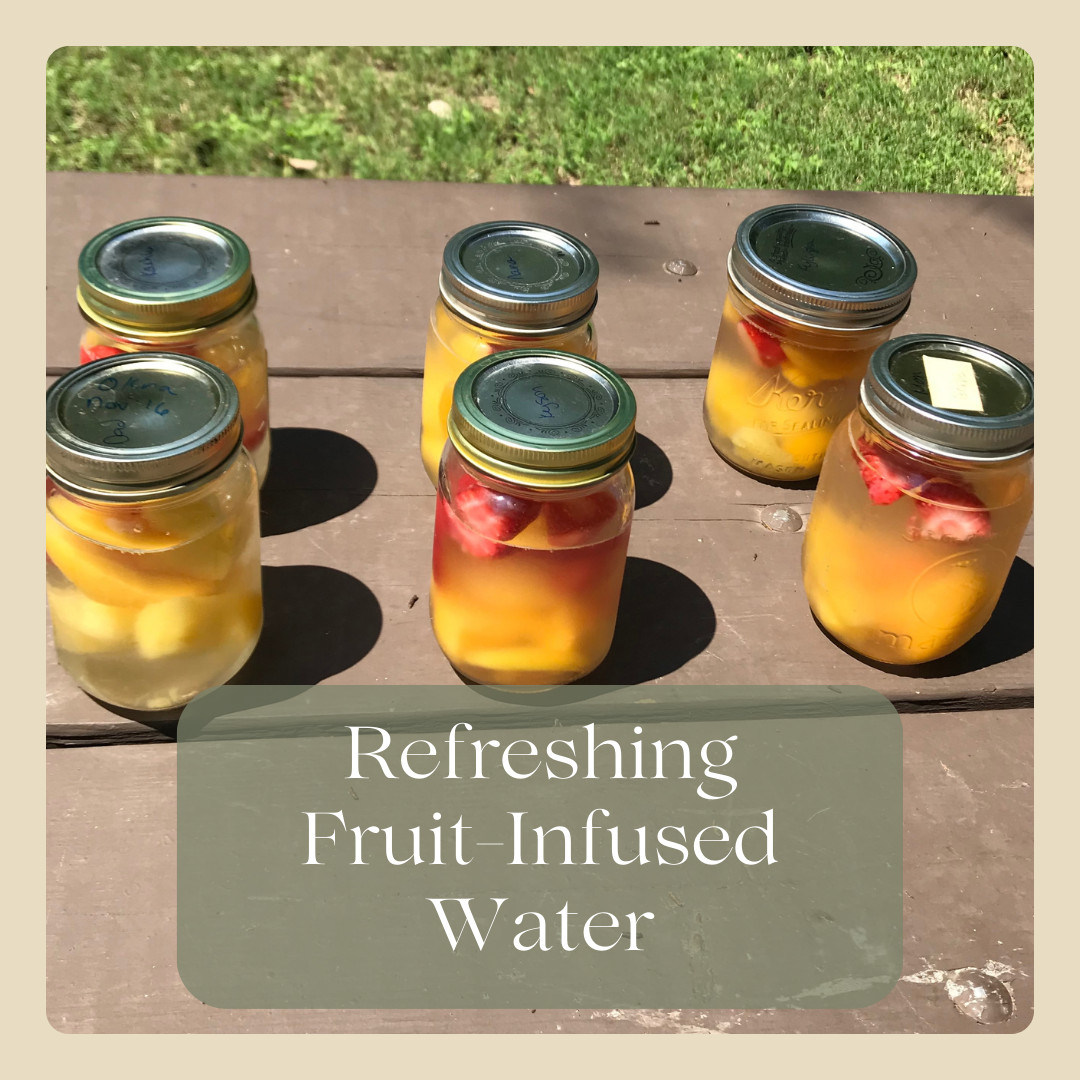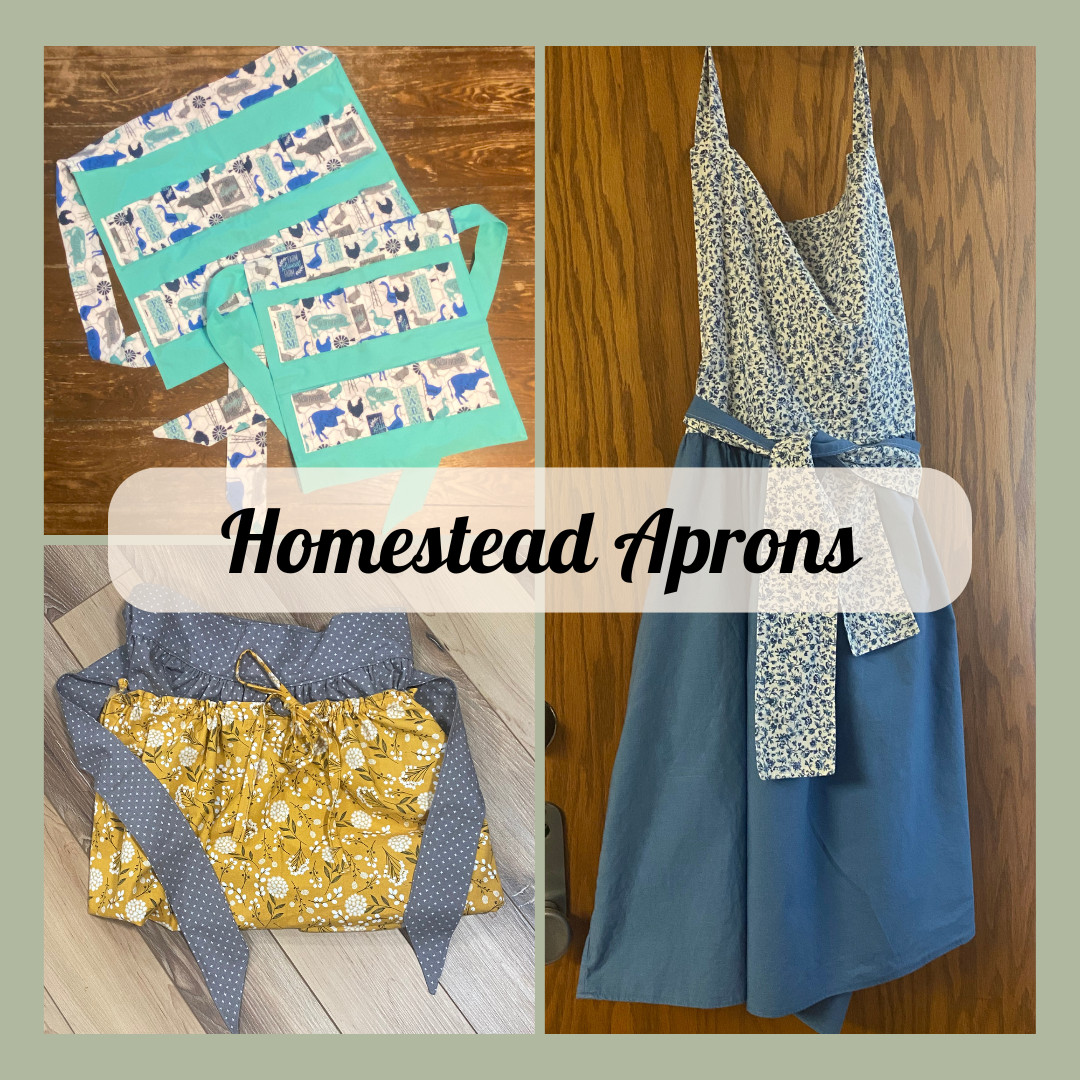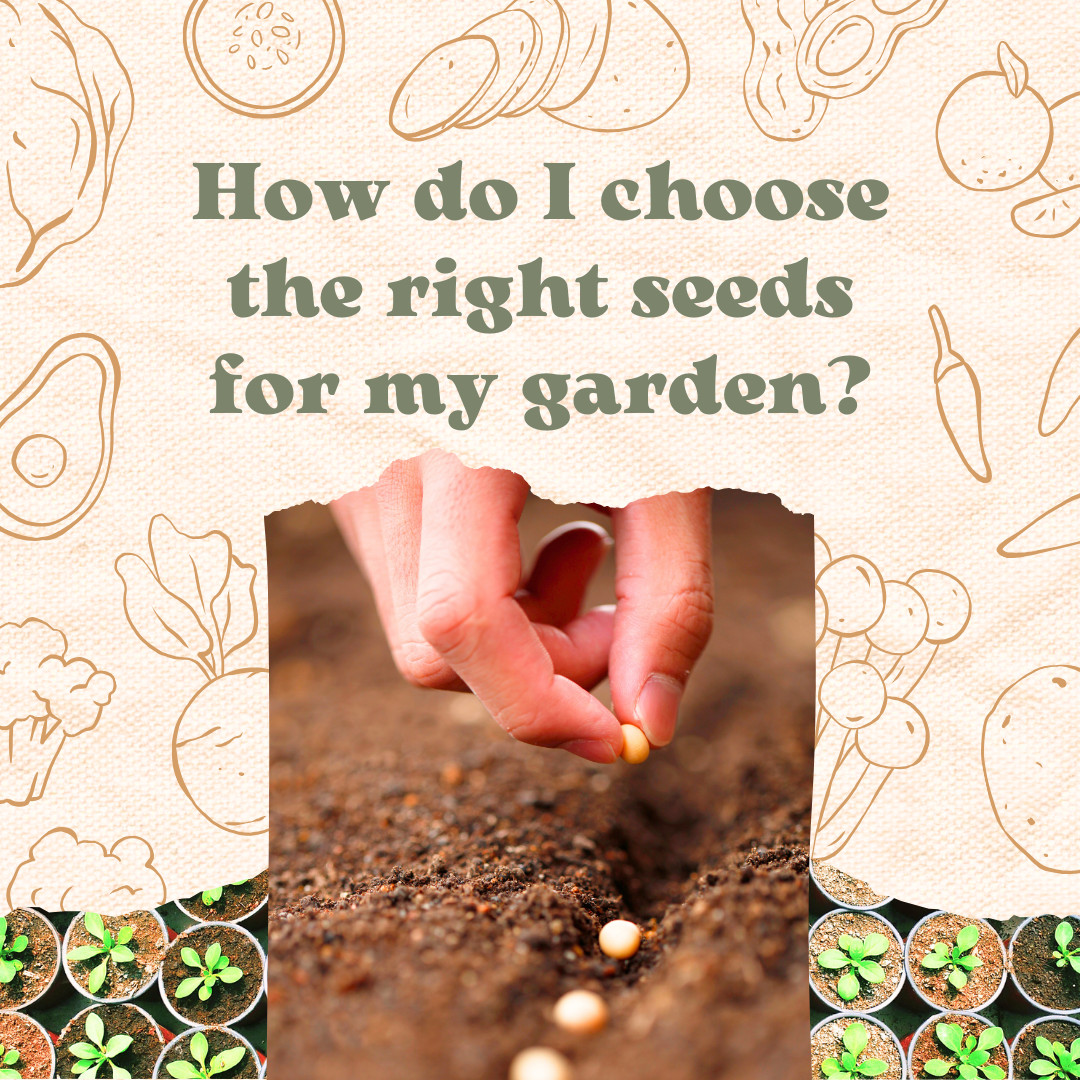
It's that time of year again...time to plan out your garden and get some seeds started. But, how do you know what seeds to get? Should you get any ole seed you come across? Or should you be picky and choose organic, non-gmo, heirloom...the list goes on.
When it comes to starting your garden, selecting the right seeds is crucial for a successful harvest. With so many options available, it can be overwhelming to decide which seeds are best suited for your needs. In this post, we'll look at the differences between organic, non-GMO, and heirloom seeds to help you make informed choices for your garden.
Organic Seeds:Organic seeds are harvested from plants grown without synthetic pesticides, herbicides, or fertilizers. They are produced through natural methods that promote soil health and biodiversity. Choosing organic seeds ensures that your garden remains free from harmful chemicals, supporting both your health and the environment.
Non-GMO Seeds:Non-GMO seeds are not genetically modified organisms. They are grown from plants that have not been genetically engineered in a laboratory. By selecting non-GMO seeds, you can avoid the potential risks associated with genetically modified crops and support traditional breeding methods that prioritize natural diversity.
Heirloom Seeds:Heirloom seeds are open-pollinated varieties that have been passed down through generations. These seeds often have a rich history and unique characteristics, making them prized by gardeners for their flavor, appearance, and adaptability. By choosing heirloom seeds, you can preserve genetic diversity and cultivate plants with a connection to the past.
Hybrid Seeds:Hybrid seeds are created by cross-pollinating two different plant varieties to produce offspring with specific traits, such as disease resistance or high yield. While hybrids can offer certain advantages, such as uniformity and vigor, they do not produce seeds that reliably reproduce the same traits in subsequent generations.
Now that you know the difference between the different types of seeds, here are a few tips you can use for choosing seeds:
- Research Your Climate: Select seeds that are well-suited to your local climate and growing conditions. Consider factors such as temperature, humidity, and sunlight exposure.
- Read Seed Descriptions: Pay attention to seed catalogs or packaging labels for information on plant characteristics, such as maturity date, size, flavor, and disease resistance.
- Support Seed Diversity: Choose a variety of seeds to promote biodiversity in your garden and help preserve rare or endangered plant species.
- Consider Your Goals: Determine your gardening goals, whether it's to grow your own food, attract pollinators, or beautify your landscape, and select seeds accordingly.
- If you are gardening as a food source, also consider how many people you are growing for and how much you need to grow in order to have a years' worth of food per person.
Whether you're a seasoned gardener or just starting out, choosing the right seeds is essential for a successful and sustainable garden. By opting for organic, non-GMO, and heirloom seeds, you can support healthy ecosystems, preserve genetic diversity, and enjoy the rewards of homegrown produce bursting with flavor and nutrients. Happy gardening!
Join our HomeGrown Homestead community—a place where we learn, grow, and share our homesteading journey together, fostering a bond of shared wisdom and experience. (everyone is welcome!)
Step into Lavender & Coffee: A Sip of Serenity, a haven for moms seeking support and community on their journey to fulfilling their roles as wives and mothers with grace and purpose.(for moms only)
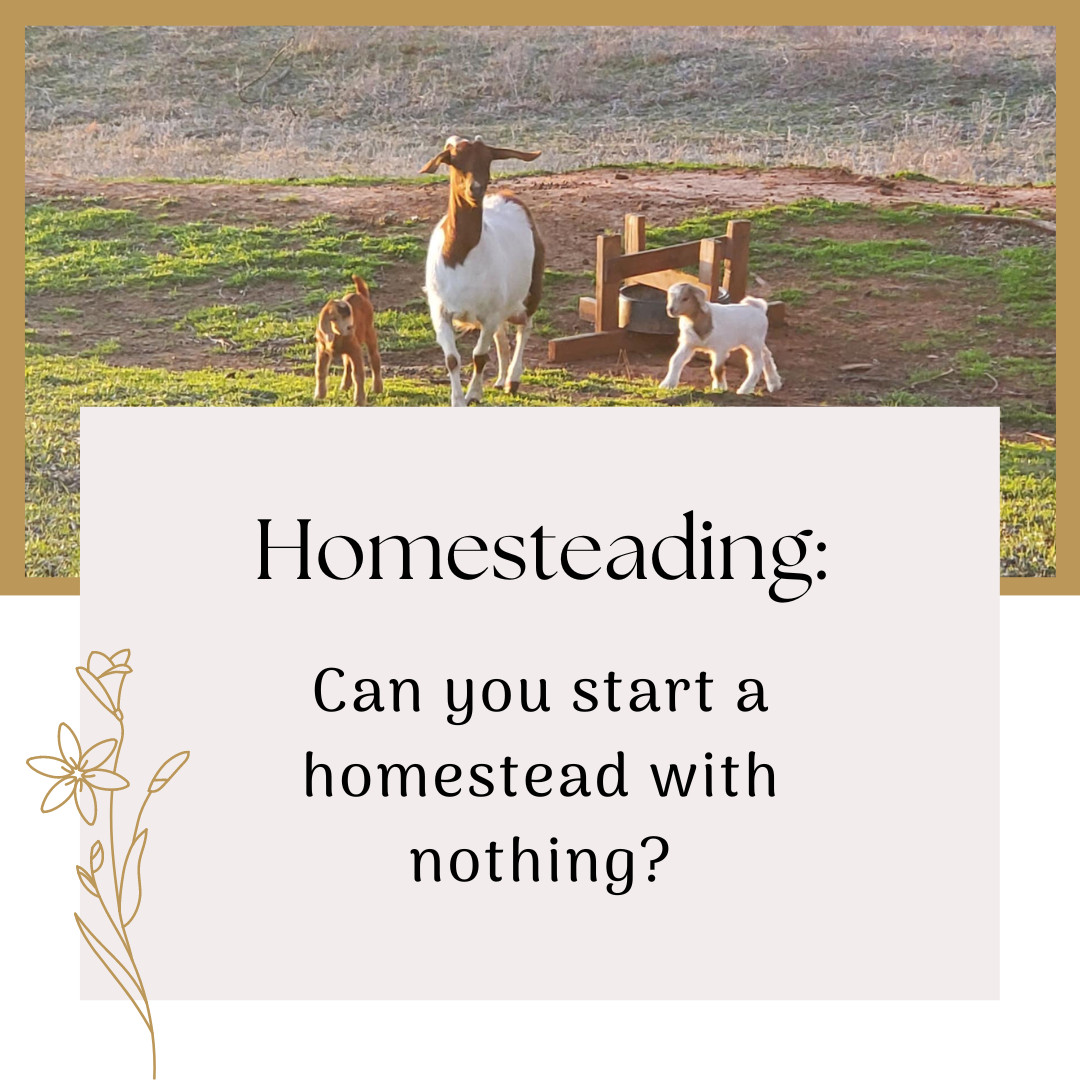
Starting a homestead from scratch is not only possible, it's a journey that can begin with surprisingly humble beginnings. At its core, homesteading is about embracing a lifestyle of self-sufficiency, incorporating elements such as gardening, food preservation, and raising livestock. This lifestyle allows individuals to live in closer harmony with the land, regardless of whether they own it, highlighting the adaptability and resourcefulness that define the homesteading spirit.
The path to homesteading involves a thoughtful assessment of one's current resources and an alignment of priorities. Key considerations include the availability of land (owned or otherwise), space optimization, and identifying which aspects of self-sufficiency are most vital to start with, like food preservation or gardening. Future homesteaders are encouraged to cultivate a mindset of resourcefulness, leveraging community connections, repurposing materials, and remaining adaptable to overcome challenges and setbacks.
Embarking on a homesteading lifestyle is a step-by-step process that begins with an evaluation of personal goals and available resources, followed by a deliberate plan to develop the requisite skills and connections. Despite its challenges, homesteading offers a rewarding way to achieve a self-sufficient life. With patience and perseverance, anyone can make the transition towards becoming a successful homesteader, embodying resilience and a deeper connection to the environment.
Read more...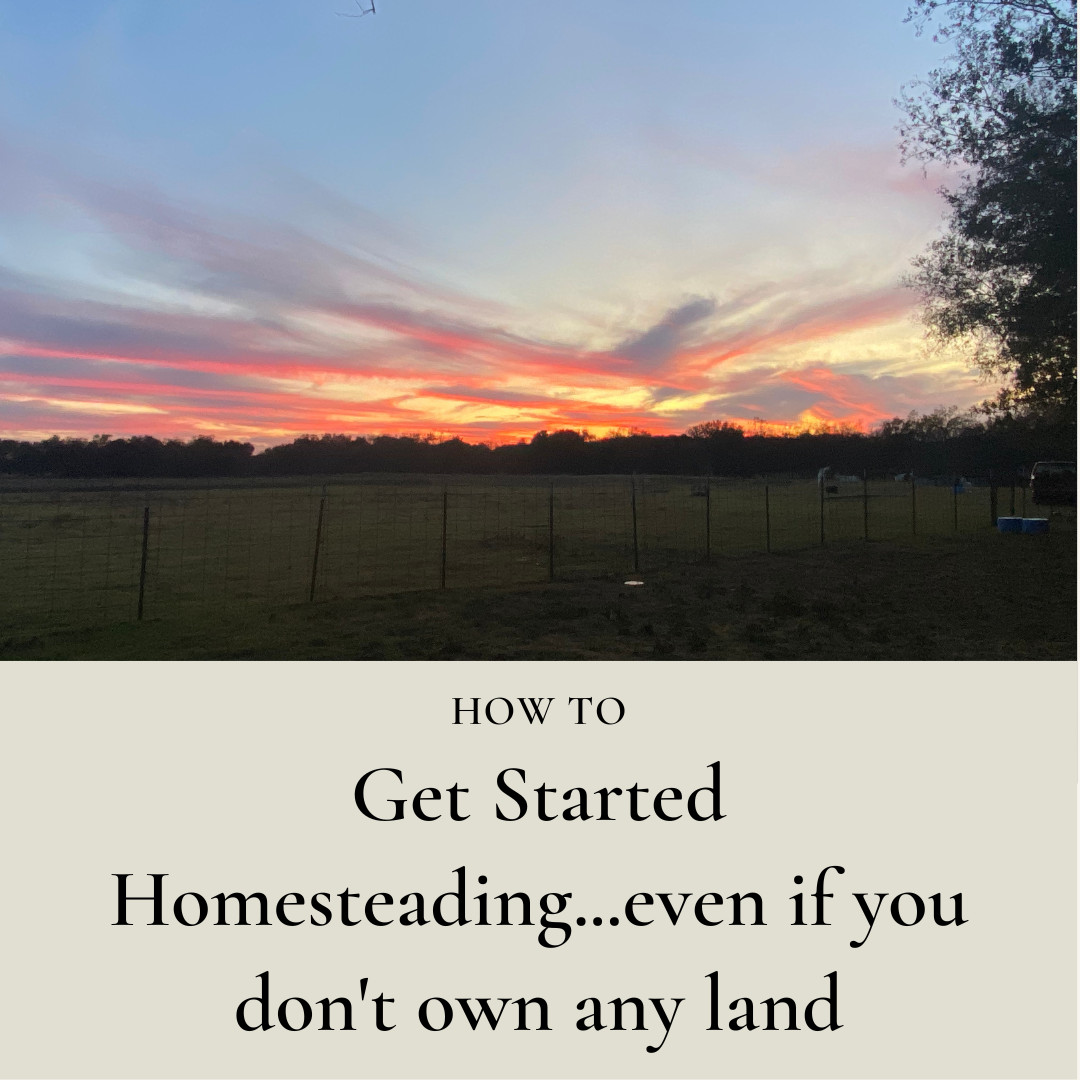
I was recently talking to moms at our homeschool co-op. A topic that kept coming up was homesteading. The thing that kept coming up was "I keep wanting to get into homesteading, but I don't know where to start"...then when they realize that my family is homesteading without owning our own land, the questions really start to flood in.
So, just how do you get started homesteading? Well, for my family it has been anything but "normal". Just like everyone else, we imagined we would first own our own land. But instead, we started with 12 possibly pregnant meat goats and 2 great pyrenees dogs. How? Well, there are actually a few ways to make this work.
1) if you know someone with a lot of unused land, they may let you use it to get started on.
2) look around your area and keep an eye out for large areas of land that need to be maintained. Find out who owns the land and see if they would be willing to let you lease it for your livestock. (you might be surprised at how well this can work!)
3) quickly purchase some land!
We are currently doing #1 but also looking into option #2 so that we can expand faster. Yes, we still want our own land. But with the economy like it is right now, it just isn't a good time to be buying land. And we certainly don't want to keep waiting to see our dreams come true.
Even if you aren't ready to jump into livestock. There are still some ways you can get started homesteading. Here's a short list of things you can do to help work your way into being a homesteading family. And you don't have to own your own land for these!
- backyard chickens (I'm setting these aside from livestock b/c they can be done right in town with minimal space)
- start a compost
- grow your own food (indoor and outdoors!)
- preserve your harvest (canning, dehydrating, freezing)
- save your seeds!
- bake bread
- have a sourdough starter
- make your own bone broth
- make granola for cereal or as a topping (I love this recipe!)
- make/use reusable paper towels (aka unpaper towels)
- make your own cleaners
- get into herbalism (even better if you grow your own herbs!)
- make your food from scratch
- make your own spice mixes, sauces, etc
- make your own fermented drinks (like Kombucha!)
- make your own dairy products (like yogurt!)
- buy meat, eggs, and milk from a local rancher
Learn from others (youtube, social media, books, etc). There are So many great homesteaders who started from the ground up. And chances are, they didn't all start out the same way. You are bound to find one you can relate to who you can learn from and follow.
Here are a few that I like to follow:
In addition to this I'd like to add that downsizing your home is a huge plus in homesteading. Let's face it, homesteading is a full-time, 24/7 "job". It will keep you super busy! So the less you have to do around the home (cleaning, organizing, digging for things you can't find), the better!
If you'd like some help in downsizing, I can certainly help you in the kitchen! Only keep what you need and organize it to best suit your needs...I can help you with that!
If you need help coming up with a plan on how you can get started homesteading now (regardless of your skills or amount of land), I can help with that too!!
Just contact me and we'll develop a plan for you that works!
But if you are looking to downsize your entire home, honestly, I'm still working on that. But I do have a great recommendation for someone who can help you!
Join our HomeGrown Homestead community—a place where we learn, grow, and share our homesteading journey together, fostering a bond of shared wisdom and experience. (everyone is welcome!)
Step into Lavender & Coffee: A Sip of Serenity, a haven for moms seeking support and community on their journey to fulfilling their roles as wives and mothers with grace and purpose.(for moms only)
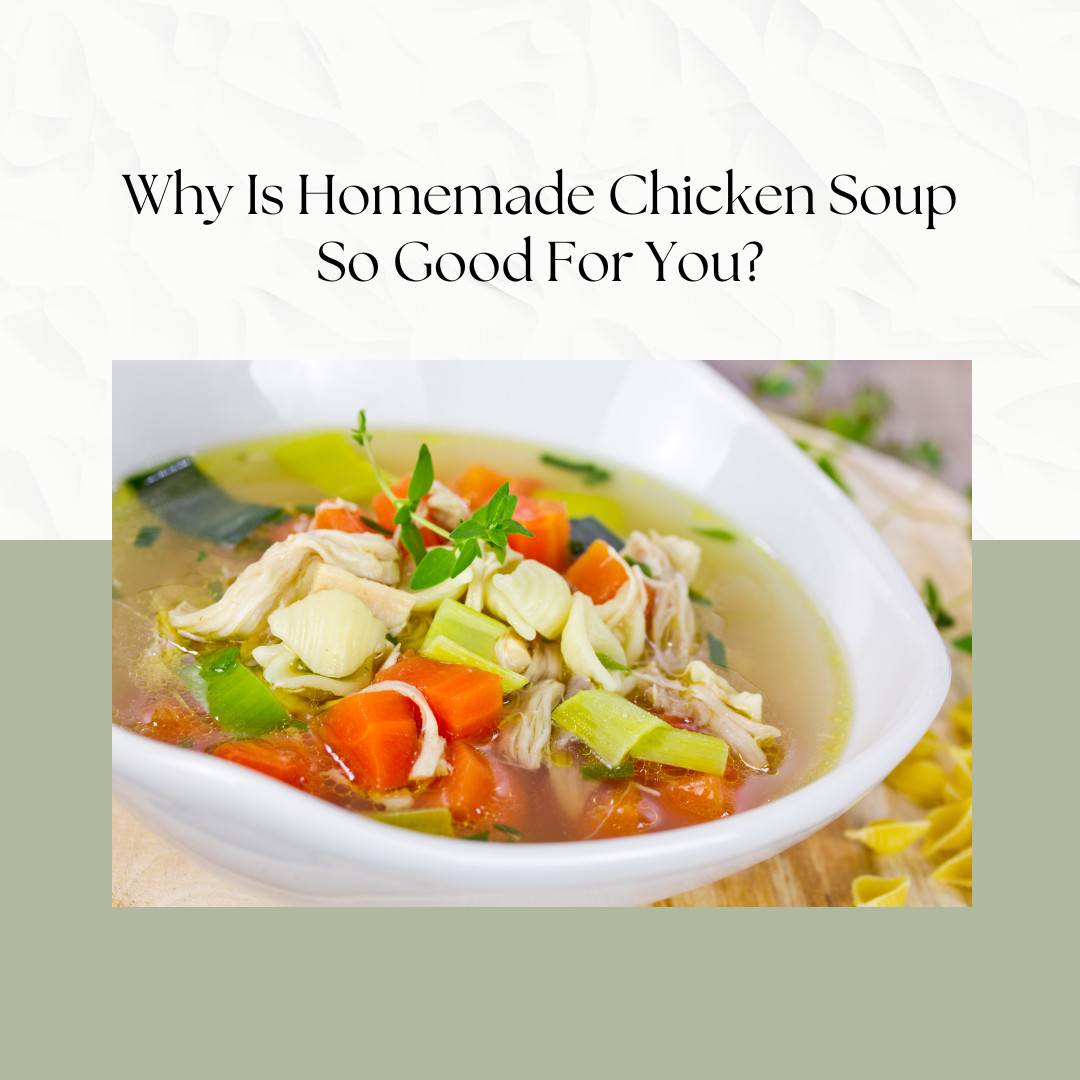
If you are anything like my family, fall weather and the sniffles often brings on some good homemade chicken noodle soup "just like Grandma's". But, have you ever stopped to wonder why that is? Is it because she had the BEST recipe and it just hits the spot? Or is there more to it than that?
One thing's for sure, you can't beat a nice warm, homemade soup on a chilly day. But I've learned over the years that there's actually a LOT more to it than that. So, let's take a look at some of the main ingredients you'll find in "Grandma's Chicken Soup".
Onion - high in flavonoids (including quercetin and kaempferol), polyphenols, and allicin. They are antimicrobial, antiviral, antioxidant, immune-enhancing, and anti-inflammatory. Onions can also enhance the action of vitamin C.
Garlic - has allicin and alliin, 2 compounds that are responsible for its antibacterial, antiviral, antiprotozoal and antifungal properties.
Celery - (seed) is an antioxidant and anti inflammatory. It also contains magnesium (benefitial use for the nervous system and muscular system), vitamin K, folate, potassium, fiber, and small amounts of vitamin C, vitamin A, and some B vitamins.
Carrots - has vitamins A, K, and C. They are high in fiber, beta-carotene (an antioxidant), alpha-carotene (anti-inflammatory), lutein (helps maintain healthy eyes), and zeaxanthin (protects eyes from harmful UV rays & blue light exposure).
Bone Broth - this one can very depending on where your broth comes from. But a good bone broth will contain all of these:
Magnesium, Phosphorus, Gelatin, Collagen, Glycine, Glutamine, Protein, Iron, Potassium, Calcium, Glucosamine, Chondroitin sulfate, Calcium.
It can help improve digestion, protect your joins, clear your skin, improve your sleep, and help support a healthy immune system.
Add-Ins:
Lemon - The juice and flesh have many health benefits. But did you know that the peel also has many health benefits? The white pith of the peel is considered a bitter and can help with digestion and liver function. Lemons are also high in vitamin C, vitamin A, beta carotene, calcium, folate, magnesium, and potassium.
Ginger - (fresh) helps stimulate the immune system, allowing it to fight bacterial and viral infections. It stimulates circulation of the blood (which helps to remove pathogens from the bloodstream). It also thins mucous and supports expectoration, and warms the body.
There's nothing like that extra cozy feeling when you are feeling a bit under the weather.
Herbs - You can find a list of herbs for the cold season here.
So, as you can see, there very well may have been a LOT more behind Grandma's chicken soup.
Here's one of my favorite ways to make a good chicken noodle soup.
Resources (with recipes!):
Join our HomeGrown Homestead community—a place where we learn, grow, and share our homesteading journey together, fostering a bond of shared wisdom and experience. (everyone is welcome!)
Step into Lavender & Coffee: A Sip of Serenity, a haven for moms seeking support and community on their journey to fulfilling their roles as wives and mothers with grace and purpose.(for moms only)
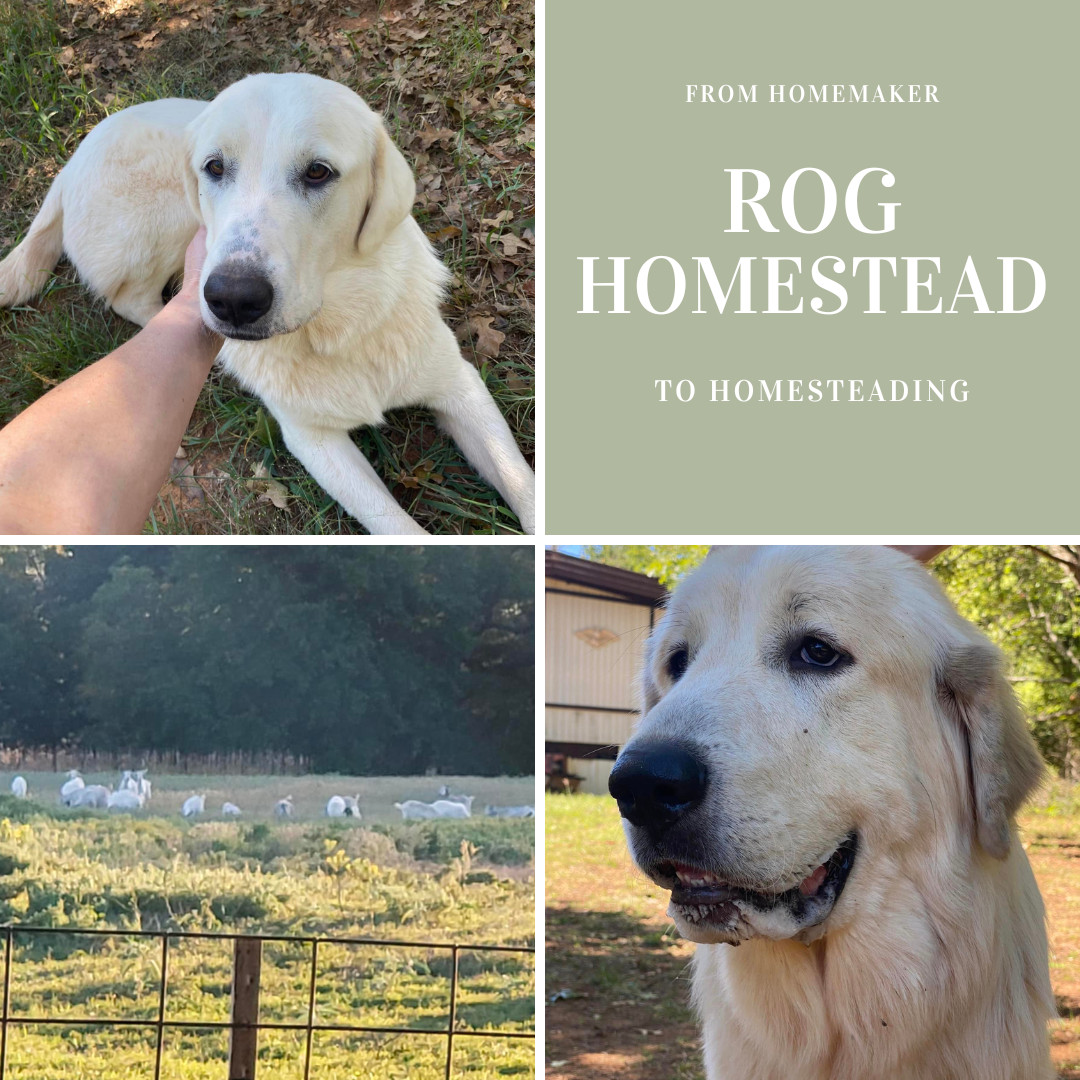
I have been a homemaker for over 20 years now. I haven't worked outside the home since I was pregnant with my oldest, who will turn 21 this year. The idea of doing so now is a scary thought for me.
Every child has a dream of what they want to be when they grow up. For me it was a wife and a mother...mission accomplished! And I have no desire of changing that dream now, even though my kids are quickly all becoming young adults. But that doesn't mean that I won't be working at all...far from it!
With the times we are in, it seems even more important to be a diligent homemaker and saving money where we can as a family. As my sons have gotten older, they have both expressed a desire to live off the land, grow our own food, and care for livestock. My daughter is happy to be the recipient, lol. And my husband is thrilled with the idea of being able to work the land with our sons.
We have slowly worked towards this goal over the years. I do my best to preserve our harvest from our small garden each year. I support local friends and purchase meats and produce from them as often as I can. Our dream is to own acres of land and be able to grow our own food for our family (and if we are blessed enough, to share our bounty with others too).
My youngest has wanted goats for a few years now, both meat and milk. He worked with goats as a young teen and the desire never left him. Fastforward a couple of years...and we find ourselves with 12 soon-to-be momma goats, meat goats!
Having goats also means that we need a good livestock guardian dog (LGD) or two. Luckily we have a friend who was needing to rehome a couple of Great Pyrenees pups. My boys and I spent some time over the past week getting to know them so that they will trust us and have an easier transition when we move them to start caring for the goats. We have made some great progress, so moving day for the pups is coming soon!
However, we do not currently own our home or any land. So, just how are we going to manage becoming a homestead when we own nothing?
Follow us on our journey and you'll see! If you find yourself in a similar situation where you long to provide for your family but, like us, do not own your home or land, you will find some great tips in following our journey.
I will be sharing updates on my blog, in my Facebook Group and, eventually hope to add a YouTube channel. If you would like to receive updates, please click here to be added to the list.
Join our HomeGrown Homestead community—a place where we learn, grow, and share our homesteading journey together, fostering a bond of shared wisdom and experience. (everyone is welcome!)
Step into Lavender & Coffee: A Sip of Serenity, a haven for moms seeking support and community on their journey to fulfilling their roles as wives and mothers with grace and purpose.(for moms only)





